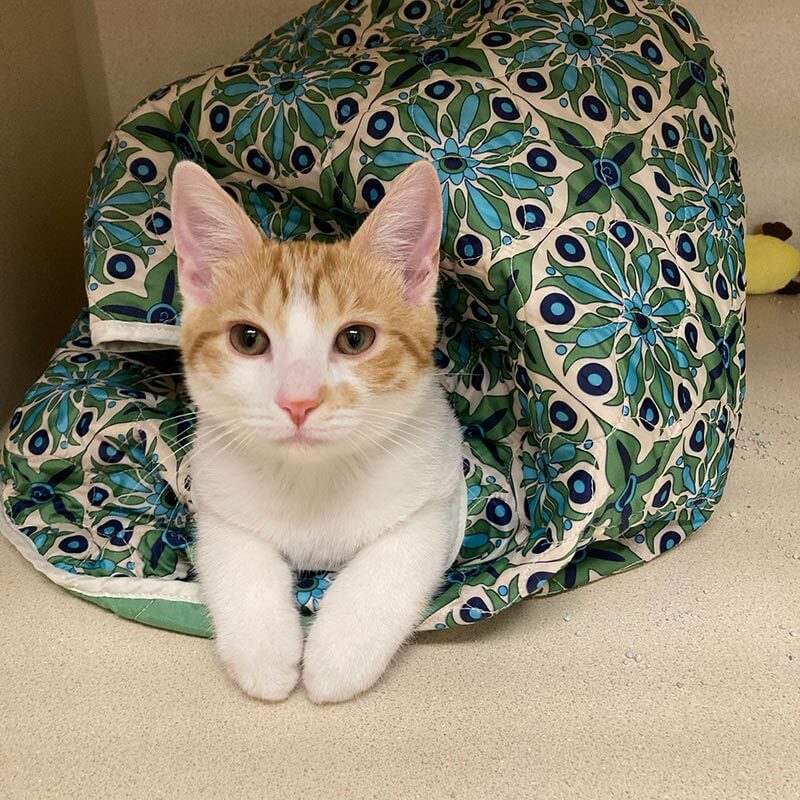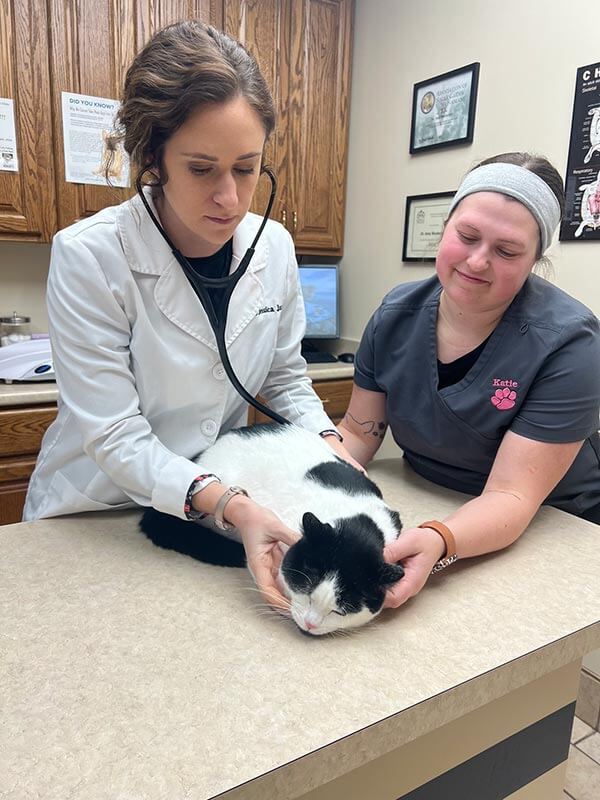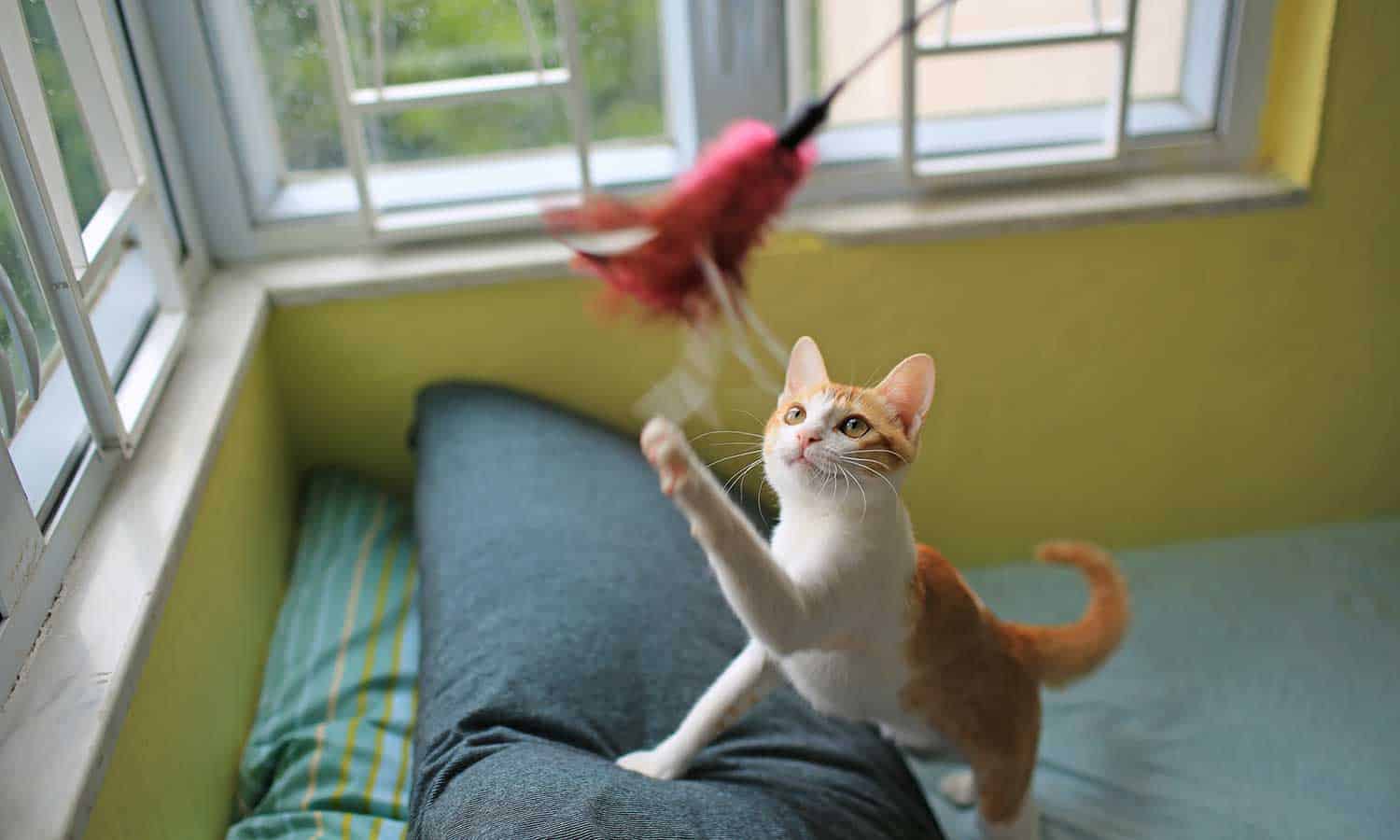Cats Need Wellness Care

According to a 2013 study conducted by Bayer HealthCare and the American Association of Feline Practitioners, more than half of U.S. cats have not seen a veterinarian within the past year for needed checkups.
There are a range of reasons for lack of feline veterinary care. Owner perception plays a role. Historically, cats have been seen as independent, low-maintenance pets. Another factor is that cats seldom exhibit discomfort or pain. Most cats also dislike veterinary visits. This can deter even the most well-meaning owner from taking their cat to the veterinarian, particularly for routine wellness exams.
Why Wellness Care is Important for Cats
Despite the perceptions and obstacles, taking cats for wellness care is important. Preventing disease or catching it in its early stages is far better than treating it once it has had time to progress to a more advanced stage. Wellness health care on a regular basis will help to avoid illness and protect you from the larger financial burden of treatment.
How We Help Cats to Get the Veterinary Care They Need
- A Calmer, Cat Friendly Environment: Our separate reception areas for cats and dogs ease feline stress. And if you have a particularly sensitive cat, call ahead and we’ll have the exam room ready for you and your cat to enter immediately.
- Wellness Guidelines: We provide clear guidelines, and have a reminder system for wellness care and protocols. Please read on to learn about the routine wellness care we recommend.
What to Expect at a Feline Wellness Exam
Your cat will be given a thorough, nose-to-tail physical examination. Exams include checking your cat’s ears, eyes, teeth, lymph nodes, thyroid, heart, lungs, abdomen, skin, and more.
Vaccinations
We recommend that your cat receives their rabies and feline distemper on a regular basis. Additional lifestyle vaccines include feline leukemia.
Feline Leukemia Test
A blood test should be performed on your cat to ensure that they have not become infected with feline leukemia. Feline leukemia is a life-threatening disease.
Parasites
A stool (feces) examination for worms and parasites is recommended on an annual basis. Parasites can be of significant concern to your cat, and even to your family. Bring a small, tootsie roll size sample from within 12 hours of the exam.
Parasite Prevention
Even if your cat is indoor-only, it is recommended to keep them protected with a parasite preventative all year round. Although it seems like indoor cats would be safe from parasites, infestation from various parasites such as fleas, ticks, mites, and mosquitos, and becoming infected from the diseases these bugs carry, is still a significant risk! Parasites can enter the home through small cracks, human clothing and shoes, and other pets that may go outside. It is important to keep your cat protected and prevent an infestation, rather than treating one.
Heartworm disease is a hot topic in the canine world, but did you know that cats can get heartworm disease too? In fact, it may be even more important to protect our cats against this parasite as it takes only a single worm to cause potentially fatal disease, and there is currently no treatment for heartworm disease in cats.
Ask one of our technicians about the safe and effective products we can provide for you.
Finally, neutering or spaying your cat is always recommended. We also offer declawing services.

Cats Over 7 Years of Age
Cats over the age of seven are considered senior pets. Because cats age much faster relative to humans, cats over seven should receive extra attention.
- Semi-Annual Exams: An exam every 6 months is an important way to watch for any developing health concerns.
- Senior Wellness Blood Screen: A more comprehensive blood and urine work-up is advised for senior cats. A comprehensive chemistry profile and CBC is accompanied by a thyroid profile and urinalysis. This work-up gives a very comprehensive view of your pet’s health. Catching problems early is critical in providing the best long-term outcome.
- Diet: A quality, senior diet is important for good health. Your pet’s diet can be discussed at your visit.
We value our feline patients and do our utmost to create a positive, cat-friendly setting. Is your cat overdue for a wellness exam? If so, call us to schedule an appointment.

